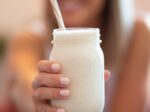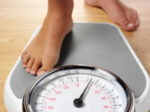 Women involved in sport or who have regular exercise have special dietary considerations, that are different from male athletes, if they want to achieve peak performance.
Women involved in sport or who have regular exercise have special dietary considerations, that are different from male athletes, if they want to achieve peak performance.
Body Composition
Achieving a healthy body mass index (that relates weight to height) and a low body fat percentage is important for optimal performance and long-term health. However attaining these body goals is not always easy and does vary according to age and ethnicity. For those over 18 years a healthy range can be 18.5 – 24.5 for Europeans; 26 – 32 for Maori and Pacific Island people’s and for Asian populations, BMI should be adjusted downwards. Body fat levels vary according to sporting needs but in general should be between 14 – 20% for women.
Eating Disorders
Athletes who compete in sports that have weight categories or require agility, strength and a lean body mass such as ballet, gymnastics, swimmers, equestrian, light weight rowers or figure skaters can be at risk of developing eating disorders. Girls are ten times more likely to be affected than boys. The very characteristics that make an athlete successful, e.g. being competitive, ‘A type’ personality, focused and determined can also conspire to make these athletes very good at avoiding food.
Eating disorders arise from a complex combination of:
- Psychological factors: low self-esteem, feelings of inadequacy, depression, anxiety and loneliness.
- Interpersonal factors: troubled family or close relationships, history of being teased about weight, difficulty expressing emotions and feelings of isolation within their peer group.
- Social factors: cultural pressures which value thinness and body perfection rather than inner qualities and strengths
Research is now focusing on brain chemicals which control appetite, hunger and digestion in order to see if imbalances could be a contributing factor. The sooner an eating disorder is detected and addressed, the better the outcome. The most effective treatments involve a team approach which includes psychotherapy, dietitian and education as well as medical management that is tailored to the individual.
Low energy availability
This can be due to an eating disorder but also can occur when food intake fails to keep pace with the energy expended during exercise.
Osteoporosis
The combination of low energy availability, particularly a low intake of carbohydrate rich foods, coupled with high levels of training can affect hormone levels. As the level of oestrogen and progesterone decline bone health is interrupted. Osteoporosis begins as bones thin and become more prone to stress fracture.
Amenorrhea
The presence of menstrual irregularities is ten times higher amongst female athletes than the average female population and can be classified into:
Primary amenorrhea – periods are late or simply fail to start.
Secondary amenorrhea – periods may be lost for three months or more.
Oligiomeorrhea – cycles are irregular
Unintentionally young athletic women who lose their periods can experience bone loss before their post menopausal mothers.
This scenario is now referred to as “The Female Triad” when young female athletes exhibit symptoms of osteoporosis and their eating patterns become disordered so that their health and athletic performance is seriously compromised. These athletes are in urgent need of specialist help.
Iron deficiency and anaemia
Characterised by low haemoglobin, low serum iron and low serum ferritin, iron deficiency occurs when there is insufficient iron in the bone marrow to maintain and continuously manufacture haemoglobin and red blood cells. This may be due to:
- Blood loss as a result of heavy menstruation, injury or gastrointestinal bleeding.
- Increased secretions such as sweat and urinary losses due to increased physical activity.
- Increased needs as a result of rapid growth and increased physical activity
- Poor iron intake due to restrictive eating practices such as fad dieting, very low energy diets, vegetarian diets etc.
- Drug/nutrient inter-relationships (e.g. antibiotics, anti-inflammatories, and anticonvulsants drugs) can reduce iron absorption.
- Increased destruction of red blood cells as a result of over training or the jarring action of jogging or contact sports.
Iron deficient people tend to be lethargic, tense, irritable, apathetic and inattentive. This not only reduces the incentive to train but also affects mental well-being and cognitive functioning. Iron deficiency affects learning, memory, decision-making, hand to eye co-ordination, accuracy and concentration which are essential ingredients for successful performance. As iron is also important for the immune system, deficiency may result in delayed recovery from injury.
Calcium and vitamin D deficiency
These nutrients are both essential for bone and muscle strength. Calcium is principally found in milk which may be avoided if athletes dislike the taste of milk or are concerned that it is mucus producing or increases their weight. This is incorrect. Research has found that low-fat dairy products which are rich in calcium can help weight control. In the event of an allergy or intolerance to cow’s milk then alternative milks such as soy or rice milks should be used.
For more information see Lea’s article Drink milk for better health.
Vitamin D is essential for calcium absorption. Athletes involved in outdoor sports usually get the recommended 30 minutes of sunlight on their face each day to have sufficient Vitamin D. However for those involved in mostly indoor sports such as swimming, squash, basketball etc then Vitamin D levels may be low. Good food sources of Vitamin D include fatty fish (salmon, tuna and sardines) margarine, eggs and some milk varieties.
Weight gain
Athletes trying to gain weight in order to compete in contact or weight graded sports should start with a medical check-up of their blood cholesterol, blood glucose and blood pressure to ensure that they are healthy enough to proceed. Contact us if you would like personal help.
Alcohol and drug abuse
Athletes who are trying to ‘make weight’ may be tempted to use laxatives, diuretics, enemas and diet pills to aid weight reduction. These can lead to serious dehydration and stomach and bowel upsets that can compromise performance and long-term health. So if weight is important to your performance then contact us for an appointment.
Alcohol is often associated with sports events to celebrate success and drown the sorrow if there is a loss. Athletic women need to be aware that they have less body water, fat and the alcohol dehydrogenase (alcohol digesting enzyme ) than their male counterparts and therefore have a lower tolerance to alcohol. Alcohol, in excess, can also reduce bone density. For more information read Lea’s article Alcohol and sport.
If you would like a nutritional assessment to check that your current diet is adequate to meet your extra requirements for training and competition then contact us for an appointment ‘one-on-one’ or over Skype.






























































